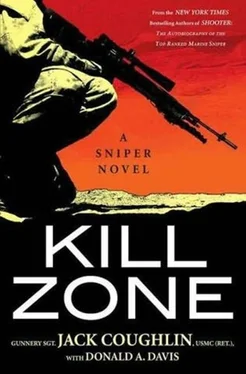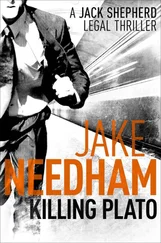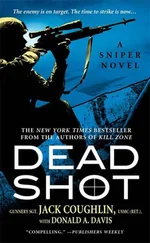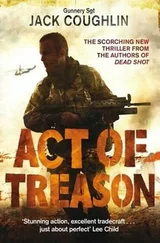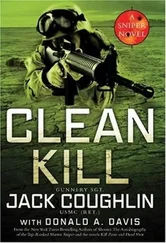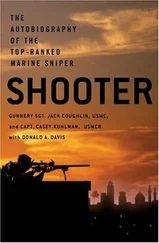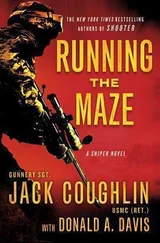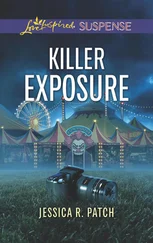Rassad now considered that Myron Hix had been sent by the Prophet to point out the darker side of American political history. More than twenty years later, Ali Shalal Rassad, the Rebel Sheikh, still savored that delicious moment when Myron-he liked to refer to him by his first name-called him a sand nigger to his face.
In his senior year at MIT, he expanded his exploration of United States history to include racial hatred. Signs in Texas restaurants once decreed, NO DOGS OR MEXICANS ALLOWED INSIDE. Native Americans had been slaughtered for their land. Railroad builders hung Chinese workers over the sides of mountains in baskets to blow away chunks of rock with dynamite and created the saying that an unfortunate person might not have “a Chinaman’s chance.” Japanese citizens were thrown in huge camps during World War II, but German citizens were not. The South was still dealing with the aftermath of slavery. Mexican immigration was a burning issue. The color of a person’s skin seemed very important in America.
Rassad was fascinated by the political demagogues. Each brimmed with vices, but rose to political prominence by painting themselves as ordinary men of the people. It was called populism, but extended only to those of their own kind: white voters who were extremely religious. When Rassad attended their churches, the congregation stared. Americans taught him racial intolerance.
His professional degree was as an engineer, but his life was about politics, a thirst for power that increased when Saddam’s son threw him in prison, where he somehow endured until the Americans came. Prison always seemed to be a good place for visionaries, and torture was excellent fuel for serious thinking.
When he was released during the first weeks of the American occupation, Rassad set out to perform political magic in Basra because he knew that populism would work as well in Iraq as it ever had in the Southern boondocks. Tribal strength, blind hatred, and fervent religious beliefs inherited over generations proved to be a potent combination. All that was needed was a leader to focus it all, someone to unite the factions.
Within a few years of the occupation, the people of Basra thought they had chosen him for that task, when in reality he had created a political vacuum by getting rid of his enemies. He was trusted by other Iraqis and bridged the gap between the religious factions by showing them there was more to be gained by working together. Peace got the oil flowing, and the oil brought in money enough for everybody. His private militia kept the peace by frequently reminding citizens about the horrors of war.
He had recognized the precise moment to shed his old skin as the leader of violent opposition and be reborn as a strong political savior, the man of peace. Rassad had the grace and intelligence to win the confidence of other foreign leaders, and the Americans were desperately begging for someone, anyone, to step forward and become the Iraqi George Washington. Rigorously managed, democracy could be just the springboard he wanted to expand beyond Basra and take over the government in Baghdad, with all of the levers of power and a treasury that King Midas would have envied.
In the coolness of his air-conditioned office, Rassad again read the urgent coded message he had received from America. It was an instruction to kill the American general Middleton immediately, but gave no details.
He let out a soft, tuneless whistle and smoothed the note on his desk as he let his mind roam free. This was tantamount to an order! Something had changed in his arrangement with Gordon Gates, and he had not been informed in advance for approval. It was irritating.
Therefore he had to examine the entire plan again. The game obviously had entered a new stage, and he would not risk losing all of those lucrative U.S. contacts because of a plot in Washington to change the way their military establishment was funded. Old alliances had to be constantly weighed on the scales of current and future value. Gates would be angry, but they would still work together in the future no matter how this single incident turned out. Gates would have no choice. There was a bigger game. Rassad could not allow the kidnapping to convince the American government to pick someone else to be George Washington.
Rassad asked his aide, “Have you acted on this instruction from the Americans to have our friends in Syria execute the Marine general?”
“Yes. I made the contact within this past hour. They will gather the needed video equipment overnight and record his beheading tomorrow morning.” He bowed slightly, expecting praise for a well-done job.
The Rebel Sheikh puffed out his cheeks, then ran a finger across his dry lips. “Send this new order. Do not kill him. Dispatch my plane to Syria at first light and fetch the general down here to me. Dispose of the two American mercenaries who deliver him.”
“As you direct.” The assistant bowed and left the office.
Rassad had not decided what to do with Middleton. He might yet kill him, or give him back to the Americans and appear to have negotiated his release. What had hardened in his thinking was that he would be the one to make the decision, not the American power brokers.
THE SMALL U.S. AIR FORCEC-20 executive jet sped across the Atlantic, bucking through pockets of rough air that were being pushed east by a storm front. Colonel Ralph Sims, the only passenger aboard, was strapped tightly into a wide, comfortable seat. This rough, bucking ride might be a mild flight compared to what awaited him when he landed.
An Air Force staff sergeant came back to check on Sims, and perched on the armrest of the seat across from him. She was an attractive brunette, with her hair cut short to frame her face and flawless makeup. Slender and with long legs that were close enough for him to touch when she crossed them. She was barefoot, and had replaced her uniform jacket with a small dark blue apron. Her perfect breasts swayed with the motion of the aircraft, threatening to break free of the little buttons on her shirt. The staff sergeant obviously had been chosen as a hostess for VIP flights because of the sum total of all of her assets, and she was given custom-tailored uniforms and had her hair done professionally at a pricy salon, courtesy of Uncle Sam.
“How are things back here, Colonel?” she asked. The accent was uniquely regional to her native West Virginia, and added to the package of charm.
“Bumpy.” Sims had larger things on his mind than this girl’s sexuality, but damn, she looked good.
“It does get that way sometimes, but the pilot is going to take us up higher and bend a little to the south to pick our way through this muck.” She waggled her foot up and down.
“No shoes today, Staff Sergeant?”
“I’m from the coal fields, sir. Didn’t even have shoes until I joined the Air Force and the government gave me some,” she laughed. “That’s a lie, but unlike most women, I hate shoes, and kick ‘em off after everyone is aboard and we’re off the ground. Easier to work barefoot.” She waved her right arm at the otherwise empty cabin. “Can you imagine trying to carry a tray while walking on high heels during a storm like this? Some gay designer who hates women created high heels, that’s what I think.”
Sims smiled. “Well, I guess none of your passengers tonight will complain.”
“Nobody has yet, sir. We were going to be flying back empty tonight, but got a last-minute call to hold and wait for you.” She enjoyed only having to deal with just one person. “It’s dark outside and we’re flying into time, so maybe you want to get some rest? Nothing you can do to hurry us along.”
He thought about the valuable hours that were falling from the clock, never to be recovered. Double-Oh and the Sergeants’ Network had done a great job on logistics, for his departure had to look normal, which meant the staff had to be given an opportunity to prepare the PowerPoint slide show and a set of briefing papers. He spent the interval finishing the hardest part of his job as the commander of an elite unit, writing letters to the families of the Marines who were killed on the raid, personal notes that said how proud he was to have served with them. The letters would console some of the heartbroken recipients who would cherish the letter and read it out loud on birthdays, holidays, and special occasions. For others, his message would only fuel the deep personal hurt of losing a loved one, and he would be blamed. He had finished the last one just before going on deck for the evening memorial service for the fallen Marines, HIS Marines!
Читать дальше
